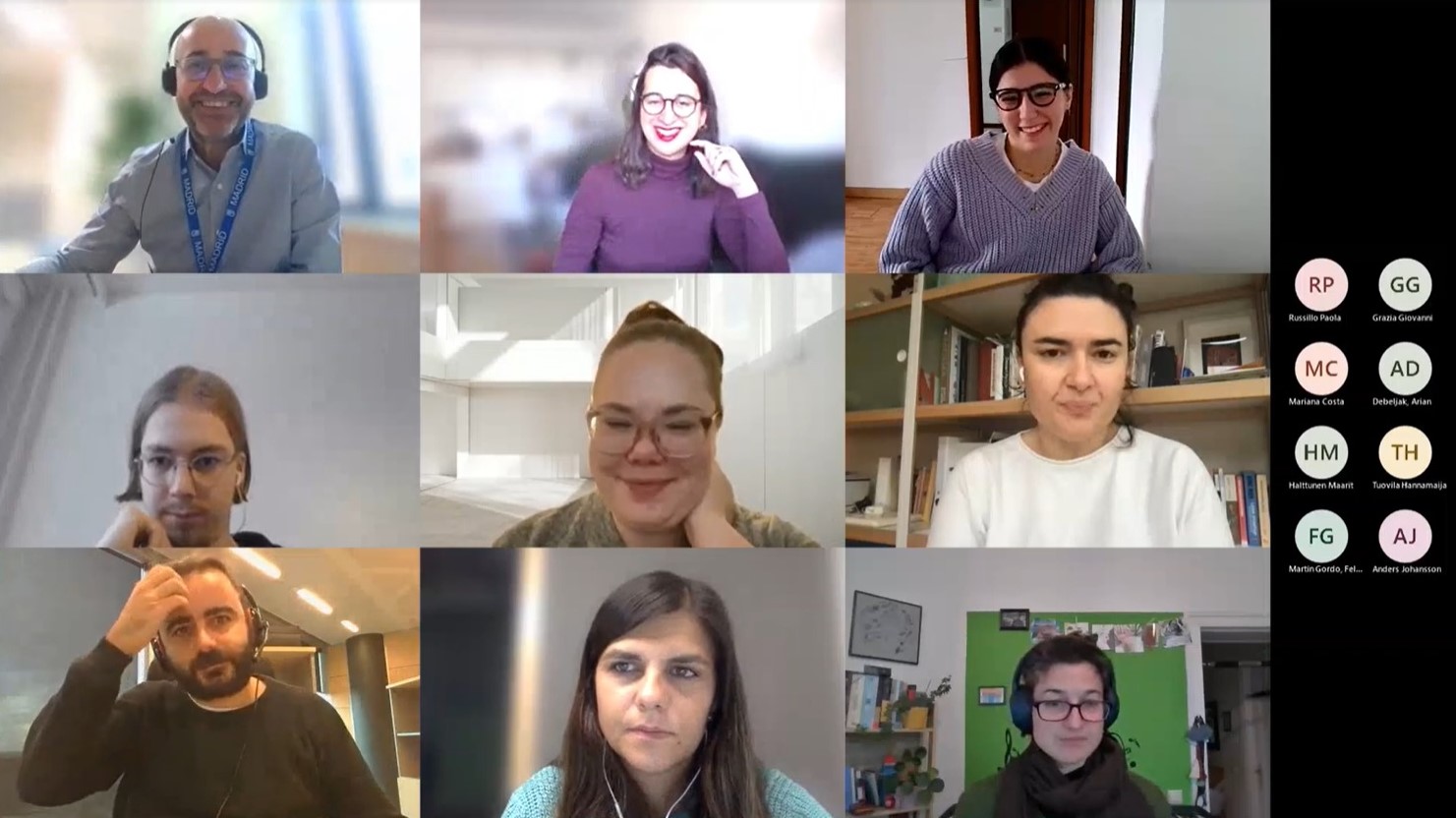
The UserCentriCities community gathered for the fourth edition of the UserCentriCafé meeting series.
During the Café, partner cities and regions get together to informally discuss real examples of user-centric services. Each month, a selected city- or region-partner shares their experience on user-centric digital services or latest projects and how they apply user-centricity, sparking conversation and feedback from participants.
In this session, Viivi Lahteenoja, special advisor on data policy and Nuutti Sten, data scientist at the Municipality of Helsinki presented the city’s data policy project.
Developed in collaboration with the World Economic Forum Centre for the Fourth Industrial Revolution, the Empowered Data Society project explores how data can be governed in a human-centric way. This human-centric approach puts people at the centre and understands them as active agents where they form trustworthy relationships in the data ecosystem. By prioritising the values, needs and expectations of people, policymakers can drive meaningful actions with positive outcomes for society while maintaining the utmost respect for the people who are part of it.
Three working groups were formed by cross-matching a pool of experts ranging from the public and private sectors, civil society, businesses, research, technology and legal experts. One focused on trust relationships. how they can be developed and nurtured; the second on methodological issues, such as how to map the journey when citizens engage with services; and the third on how to shift from reactive to proactive services, where they conducted case studies to explore common denominators.
Trust is fundamental in every relationship, and it is no different in our data relationships. To define and develop trust relationships with their citizens, cities and organisations must be trustworthy. Shifting the responsibility of trust relationships from the citizen to the organisation and taking into consideration the power imbalance between the local authority and the citizen is key to building trust relationships.
Helsinki and Finland enjoy a very high level of trust in their government. They are a unique example in the European landscape in this sense. However, this is not the case for newly come immigrants from other countries who experience different relationships with their homeland governments, which is what motivated Helsinki to participate in the project and learn from a diverse and multinational group of experts as they try to adapt their digital services to be more trustworthy.
But how to ensure healthy and sustainable trust relationships? The white paper “Empowered data societies: A human-centric approach to data relationships”developed as an output of the project, identifies four conditions for trust relationships to grow strong:
-
When behavioural consistency meets expectations.
-
According to the level of risk involved – to more risk/vulnerability, less trust.
-
In solidarity and commonality of purpose.
-
When allowing parties to “maintain face”.
In a time where the overflow of data often leaves us feeling vulnerable, human-centricity can pave the way to healthy, sustainable trust relationships where data can be used and optimised to encourage empowered data societies.
To learn more about UserCentriCities and join the community, feel free to contact us at mayra.garcia-blasquez@eurocities.eu .